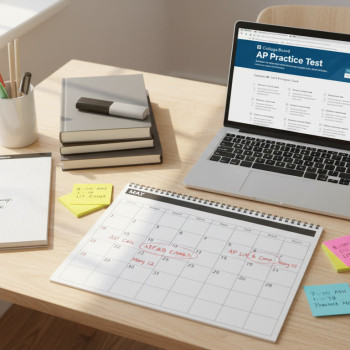Why “Weeder” Courses Exist — and Why They Don’t Have to Break Your GPA
Let’s be real: every high school has at least one course that feels designed to trim the class roster. Teachers call them rigorous, departments call them advanced, guidance counselors call them ‘excellent preparation for college’ — students call them weeder courses. These classes (often AP Biology, AP Calculus BC, AP Chemistry, or AP Physics) come with heavy workloads, steeper grading curves, and frequent high-stakes tests. But here’s the good news: a weeder course can be a resume-builder without turning your GPA into a casualty.
This post is for students and parents who want to take smart risks. You’ll find practical, evidence-informed strategies to protect your GPA while gaining the academic credibility of AP coursework. Expect study techniques, course-selection advice, grading strategies, real-world examples, and the tactical moments when getting help — including Sparkl’s personalized tutoring — can make the difference between a transcript that shines and one that stumbles.
Understanding the Trade-Off: Rigor Versus GPA
At its best, taking a rigorous AP class signals intellectual curiosity and readiness for college. At its worst, an overambitious schedule can lower your GPA and undercut your college goals. The trick is to think strategically, not bravely. Ask: What do you want admissions officers to see? A consistent 3.9+ GPA with selective APs? Or one semester of perfect grades followed by a fall in your average because of an overloaded schedule?
Tip: Admissions officers value course rigor — but not at the expense of sustained academic performance. A thoughtfully chosen AP list, with clear reasons behind each choice, often beats a scattershot approach.
Step 1 — Choose APs Like a Strategist, Not a Gladiator
You don’t need to take every AP offered. Instead, pick ones that align with your strengths and future major, and spread them across years so they don’t collide. Here’s how to prioritize:
- Core alignment: If you plan to major in engineering, AP Calculus and AP Physics matter. If you’re drawn to humanities, AP English and AP History carry more weight.
- Skill fit: Do you thrive on problem-solving under time pressure? Consider APs with frequent assessments. Prefer extended writing and projects? Humanities APs might be a better fit.
- Timing: Avoid stacking three heavy APs in the same semester. Distribute them so major assessments and deadlines don’t overlap.
- Local context: Know your school’s reputation: how do local colleges view your school’s AP rigor? That helps gauge risk.
Example Course-Load Scenarios
Below are realistic examples of course loads to show trade-offs between rigor and GPA protection.
| Scenario | Senior Year Course Load | Benefits | Risks |
|---|---|---|---|
| Balanced Challenge | AP English, AP Calculus AB, Honors History, Elective | Strong transcript balance; manageable workload; APs in core areas | Less demonstration of extreme STEM intensity if applying to engineering |
| Heavy STEM | AP Calculus BC, AP Physics C, AP Chemistry, Dual Enrollment Math | Shows clear STEM commitment | High burnout risk; possible GPA hit without strong supports |
| Humanities Focus | AP English Lang, AP US History, AP Psychology, Creative Writing | Consistent with humanities interests; lower lab/time-intensive burden | May appear less competitive for STEM programs |
Step 2 — Protecting Your GPA During High-Stakes Terms
Once you’re in a demanding AP, the goal shifts from proving you can handle it to proving you can handle it well. Here are grade-preserving tactics you can use right away.
1. Master the Syllabus Game
In many AP classes, the syllabus is a map. It tells you how grades are weighted, when big assessments are coming, and what patterns the teacher follows. Use it to plan. If tests are 60% of your grade, invest heavily in test preparation. If labs and projects count more, prioritize group-work management and reporting skills.
2. Convert Uncertainty into Predictability
Teachers value consistent work. Missing small assignments or late labs add up. Use a planner to record every due date. When possible, finish major assignments early to free time during test weeks. One late night per week is survivable; multiple late nights across a month will compound into grade drops.
3. Become a Question Detective
AP tests and classroom assessments often reward specific patterns — the type of reasoning, language, and format a teacher prefers. Keep a “question bank” of problems or prompts where you track what kinds of wrong answers are common and why. If a particular lab skill or calculus technique shows up repeatedly, drill it until it’s automatic.
4. Grade-Saving Moves When You Slip
- Office hours: Ask for targeted feedback and what would move your grade up. Teachers appreciate initiative and may nudge you toward extra-credit opportunities you didn’t know existed.
- Regrade requests: If an answer was marked incorrect and you have evidence (rubric or text) that supports partial credit, politely request a re-evaluation.
- Assess weighting awareness: If you’re narrowly missing a grade threshold, identify low-effort, high-impact activities (e.g., a project redo, optional problem set) to recover points.
Step 3 — Study Systems That Scale for APs
Studying for an AP is different from preparing for a weekly quiz. You need a system that scales across months and multiple content strands.
Spaced Practice and Active Recall
Research-backed methods like spaced repetition and active recall are especially powerful for AP content, which often requires memorization plus application. Use short, frequent practice sessions instead of marathon cramming. Flashcards (digital or paper) combined with practice tests help transfer knowledge to long-term memory — and improve confidence during cumulative AP exams.
Practice Tests as Investment, Not Punishment
Full-length practice exams are the single best predictor of test-day performance. Don’t treat them as checkpoints only; treat them like training runs. When you take a practice test:
- Simulate testing conditions (timed, minimal breaks).
- Review missed items immediately and categorize errors (content, careless, time-management).
- Turn errors into targeted mini-lessons — then re-test those areas later.
Step 4 — Tactical Exam Strategies for High-Stakes AP Tests
On the AP exam itself, techniques that preserve points matter. Here are tactical habits that reliably protect scores (and by extension, your GPA if the course grade depends on AP exam results or teacher-curved grades tied to exam practice).
- Pace with checkpoints: Break the exam into chunks and set mini-deadlines. If multiple-choice has 60 questions in 60 minutes, aim for a 10-question checkpoint every 10 minutes and a buffer at the end.
- Process of elimination: When unsure, eliminate clearly wrong choices first. Odds improve significantly when two choices look plausible.
- Answer everything: On multiple-choice, never leave blanks. Guesses with some elimination technique beat nulls.
- Short-Answer gold: For free-response questions, write a quick outline before you start. Structure wins partial credit even if time runs out.
Step 5 — Use Support Systems Early: Why Help Isn’t a Surrender
Asking for help early is one of the smartest GPA-protection moves. Support comes in many forms — teachers, peers, school tutoring centers, and private tutoring. The right tutor can accelerate learning by focusing on gaps and helping implement efficient study systems.
Example: A student who struggled with AP Calculus BC’s integration techniques began two months of focused 1-on-1 sessions. The tutor provided tailored problem sets, exam pacing drills, and weekly feedback. The student moved from C+ in midterms to an A- by term’s end — and passed the AP exam. That targeted support is exactly where services like Sparkl’s personalized tutoring shine: 1-on-1 guidance, tailored study plans, expert tutors, and AI-driven insights to track weak points and adapt study plans in real time.
When to Escalate to Private Tutoring
- Grades are slipping despite regular studying.
- Practice test performance is stagnating or getting worse.
- Your schedule is tight and you need high-efficiency, high-impact learning.
- You want a tailored plan for the AP exam with periodic progress checks.
Step 6 — Communicating with Teachers and Counselors
Teachers and counselors are allies, not gatekeepers. A short, respectful conversation can clarify expectations and reveal unadvertised ways to improve your grade.
- Before parent-teacher conferences, prepare a one-page summary of your concerns and goals.
- If you missed a concept, ask for a specific re-teaching video or resource rather than vague advice.
- Counselors can help with course load planning to avoid concentrated semesters of risk.
Navigating GPA Weighting and College Applications
Many high schools weight AP classes (e.g., A in AP = 5.0 scale). That weighting can offset occasional low marks — but it’s not a license to overload. Admissions officers will see both the raw rigor and the grade trend. If you attempt a particularly brutal AP and the grade slips, a clear upward trajectory in subsequent semesters helps contextually. Colleges also value narratives that explain growth: a short note in the application about a heavy term that taught resilience and led to improved outcomes can be constructive when honest and concise.
Table: How AP Weighting Can Affect GPA
| Grade | Unweighted GPA Value | Weighted AP Value (Example) | Impact on 4-Course Term Average |
|---|---|---|---|
| A (90–100) | 4.0 | 5.0 | Raises term average, shows high rigor |
| B (80–89) | 3.0 | 4.0 | Neutral to mildly positive if other grades high |
| C (70–79) | 2.0 | 3.0 | Risk: lowers cumulative GPA if repeated |
Mental Health and Time Management — The Often Overlooked GPA Protectors
Burnout shows up as missed assignments and rattled exam performance. Protecting your GPA includes protecting your wellbeing. Practical steps:
- Schedule sleep as a non-negotiable.
- Block weekly time for rest and activities that recharge you.
- Use a calendar app to break large projects into half-hour tasks.
- If anxiety interferes with performance, seek school counseling early.
When to Reconsider a Course
Sometimes the smart move is to step back. If a class is consistently causing a cascade of failing assignments, digestive effects on other courses, or serious mental health decline, it’s reasonable to explore dropping to a non-AP or honors version. The goal is long-term academic success, not short-term heroics.

Real-World Examples: How Students Protect Their GPA in Weeder Courses
Here are two composite examples (inspired by real patterns) showing how different strategies play out.
Case A — The Calculus Climb
Sophia entered AP Calculus BC confident but overwhelmed by pace. Midterm: B-. She built a recovery plan: weekly 1-on-1 sessions for targeted weak spots, daily 25-minute focused problem sets, and three full practice exams before the AP. By the end of the term she raised her grade to A- and scored a 4 on the AP exam. Key moves: early help, structured practice, and test simulation. Personalized tutoring (1-on-1, tailored plan, progress tracking) played a crucial role in her turnaround.
Case B — The Chemistry Rebalance
Marcus signed up for AP Chemistry alongside AP Physics C and two honors classes. By month two his homework was slipping and tests suffered. He and his counselor rebalanced: moved AP Physics to next year, kept AP Chemistry, and added a school tutoring block twice weekly. Without burning out, he finished with a B+ in Chemistry and a strengthened GPA trajectory. Key moves: tactical de-load, realistic scheduling, and early counselor involvement.
How Parents Can Support Without Hovering
Parents play a pivotal role. Supportive actions include:
- Helping create a study calendar but letting the student own the plan.
- Encouraging early help-seeking (teachers, tutors, counselors).
- Monitoring for burnout and promoting balance: sleep, exercise, social time.
- Framing choices as strategic rather than punitive: shifting an AP is not failure; it’s planning.
Bottom Line: Smart Rigor Protects the GPA You’ll Be Proud Of
AP courses are valuable — but so is the transcript you present to colleges. The best approach is strategic: choose APs that align with your strengths and goals, space them intelligently across semesters, use evidence-based study methods (spaced practice, active recall, practice tests), and get help early when you hit obstacles. Use grading transparency (syllabus) and teacher conversations to convert uncertainty into clear improvement steps. When targeted, expert coaching is needed, personalized tutoring like Sparkl’s can deliver the tailored plans, expert tutors, and AI-driven feedback that make improvement efficient and sustainable.
In short: you can take on challenging AP weeder courses and protect your GPA. With planning, deliberate practice, and the right support systems, you’ll finish the year with both the credibility of rigorous coursework and the GPA that opens doors.

Quick Checklist: GPA Protection Plan for Weeder AP Courses
- Before enrolling: Align AP choices with strengths and future major.
- Schedule: Avoid stacking too many heavy APs in one semester.
- Early term: Master the syllabus and grading weights.
- Weekly routine: Short, focused practice sessions and spaced review.
- Monthly: Take a timed practice test and analyze errors.
- If sliding: Ask for teacher feedback, request targeted regrades where warranted, and consider tutoring.
- Health: Prioritize sleep and mental health to maintain consistent performance.
Final Note for Students and Parents
Balancing ambition and realism is an art every successful student learns. Taking tough AP courses signals maturity and intellectual curiosity — but protecting your GPA requires strategy, consistency, and sometimes help. If you want an individualized game plan, consider pairing school resources with focused 1-on-1 support: tailored study plans, expert tutors, and AI-driven insights (like those Sparkl offers) can turn overwhelm into achievement. Take the smart route: challenge yourself thoughtfully, protect your transcript, and keep your long-term goals in clear view.
Good luck — and remember: your work ethic matters, but your plan matters more.


















No Comments
Leave a comment Cancel